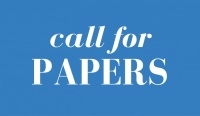The Role of Accounting Conservatism to Minimize Tax Evasion through Deferred Taxes (Field study)
Abstract
This study purpose to analyze conservatism accounting influence towards tax avoidance through deferred tax, the study was conducted to Algerian business Environment, on a sample of 70 observations via a questionnaire directed to accounting professionals, university professors, and tax officials during the year 2019, and we have used descriptive and analytical approach. The acquired data analysed by path analysis through the statistical analysis program SPSS. This study concludes that conservatism accounting practice significantly: influence deferred tax practice but did not influence tax avoidance. Conservatism accounting practice is also having no influence towards tax avoidance committed by deferred tax. This deferred tax is only significantly influential to commit tax avoidance. This study can contribute in taxation field as input in tax planning formulation in Algerian business Environment.
Downloads
References
أبو نصار ومحفوظ المشاعلة وفراس الشهوان. (2003). الضرائب ومحاسبتها بين النظرية والتطبيق (المجلد ط 02). المكتبة الوطنية.
إسماعيل قزال. (24 جوان، 2018). دراسة تأثير سياسات التحفظ المحاسبي على جودة المعلومات المالية في ظل تطبيق النظام المحاسبي المالي SCF . 2018. ورقلة، كلية العلوم الاقتصادية والعلوم التجارية وعلوم التسيير، الجزائر.
الجريدة الرسمية للجمهورية الجزائرية (25 مارس، 2009). الجمهورية الجزائرية الديموقراطية الشعبية. المادة 134-3 المتعلقة بالضرائب المؤجلة، العدد 19. الجزائر.
الغول, ر. (2015). قضايا محاسبية معاصرة ( التحفظ المحاسبي). القاهرة: مكتبة الوفاء القانونية.
المومني, آ. خ. (2018). أثر التحفظ المحاسبي في إدارة مخاطر هبوط التدفقات النقدية التشغيلية في الشركات المدرجة في بورصة عمان: د راسة تحليلية. المجلة الاردنية في إدارة الأعمال،. 14(1)
شنوف, ش. (2016). المحاسبة المالية وفقا للمعايير الدولية للابلاغ الماليIFRS والنظام المحاسبي الماليSCF. الجزائر: ديوان المطبوعات الجامعية.
Abderrahim, M. A. (2009, Avril 1). Conservatisme comptable et coût de la dette : étude sur un échantillon d’entreprises canadiennes. 6(1).
Eric, V. (2014). Fraude fiscale et paradis fiscaux. Paris: Dunod.
Feltham, G. &. (1996, Autumn). Uncertainty resolution and the theory of deprecation measurement. (U. o. Chicago, Ed.) Journal of accounting research, Vol 34.
Gan, Z. (2018, May). Conditional Conservatism and Tax Avoidance. Rotterdam, ERASMUS SCHOOL OF ECONOMICS, Rotterdam Netherlands.
Momani, A.K. (2018, December). The Effect of Accounting Conservatism in Managing the Risk of Downside of Operating Cash Flows of Companies Listed in Amman Stock Exchange: An Analytical Study. Jordanian Journal of Business Administration, Vol14 (1).
Gezzel, I. (2018, June). Study the effect of conservative accounting policies on the quality of financial information under the application of the SCF financial accounting system, Ouargla, Faculty of Economic Sciences, Business Sciences and Management Sciences, Algeria.
Mahfouz, Al & Firas Sh. (2003). Tax and its accounting between theory and practice (Volume i 02). National Library.
Official Journal of the Algerian Republic. (2009, March 25). The People's Democratic Republic of Algeria. Article 134-3 on deferred taxes, No. 19. Algeria.
Ghoul, R. (2015). Contemporary accounting issues (accounting conservatism). Cairo: Al-Wafa Legal Library.
Chenouf, Ch. (2016). Financial accounting in accordance with the International Financial Reporting Standards IFRS and the Financial Accounting System SCF. Algeria: University Publications Office.
Copyright (c) 2021 Hamza Tedjania, Mohamed Elhadi Diffallah, Ali Labsi

This work is licensed under a Creative Commons Attribution-NonCommercial 4.0 International License.













